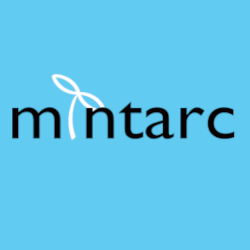Development-Focused Operating Systems
From Mintarc Forge
Development-Focused FOSS / OSS Operating Systems
Development-focused operating systems are specifically designed to provide an environment conducive to software development. These operating systems offer tools, libraries, and frameworks that facilitate coding, testing, and deployment, making them ideal for developers, programmers, and researchers.
Characteristics of FOSS Development-Focused Operating Systems
Comprehensive Development Tools
- FOSS development-focused operating systems come pre-installed with a variety of development tools, including compilers, debuggers, integrated development environments (IDEs), and version control systems. This comprehensive suite allows developers to write, test, and deploy code efficiently.
Package Management Systems
- These operating systems typically include robust package management systems that simplify the installation and management of software libraries and dependencies. This feature enables developers to easily access the tools they need without manual configuration.
Customization and Flexibility
- FOSS development-focused OSs allow users to customize their environments according to specific project requirements. Developers can modify system settings, install additional software packages, or even alter the source code of the OS itself to suit their needs.
Support for Multiple Programming Languages
- These operating systems often provide support for a wide range of programming languages out of the box (e.g., Python, Java, C/C++, Ruby), making it easier for developers to work in their preferred language without needing extensive setup.
Community Support and Documentation
- FOSS development-focused operating systems benefit from strong community support. Extensive documentation, forums, and community-driven resources help users troubleshoot issues and share knowledge about best practices in software development.
Open Source Collaboration
- Being open-source encourages collaboration among developers. Users can contribute to the improvement of the OS itself or its associated tools, fostering a culture of innovation and shared learning.
Benefits of FOSS / OSS Development-Focused Operating Systems
- Cost-Effectiveness: Most FOSS operating systems are free to use, which significantly reduces software costs for individuals and organizations.
- Transparency: Users can inspect the source code for security vulnerabilities or performance issues, leading to greater trust in the software.
- Rapid Development Cycle: Access to a wide range of pre-built libraries and tools accelerates the development process and allows for faster prototyping.
- No Vendor Lock-In: Users are not tied to proprietary vendors for updates or support; they can modify or replace components as needed.
Applications of FOSS / OSS Development-Focused Operating Systems
- Software Development: Ideal for individual developers or teams working on applications across different platforms.
- Web Development: Used by web developers to create websites and web applications using various frameworks and languages.
- Data Science: Popular among data scientists for developing machine learning models and data analysis applications.
- Embedded Systems Development: Employed in developing software for embedded devices where resource constraints are a consideration.
- Game Development: Used by game developers to create games using open-source game engines and tools.
